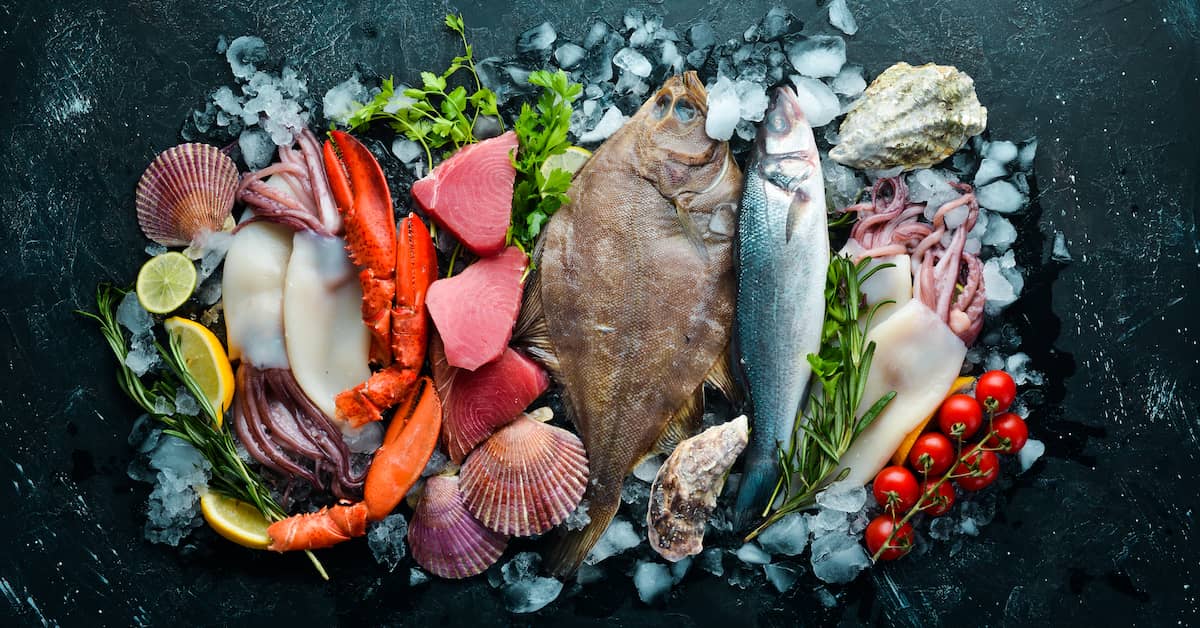
Let’s face it, nobody wants to live the rest of their lives with serious kidney problems and stuck in a cycle of medication, doctor appointments, and trips to the dialysis center.
Fortunately, it’s easier to strengthen the health of your kidneys now than ever before. New research shows all you have to do is look to the sea…
Chronic kidney disease (CKD), also called chronic kidney failure, happens when your kidneys slowly lose their ability to filter wastes and excess fluids from your blood. When this occurs, dangerous levels of fluid, electrolytes and wastes can build up in your body. Symptoms include nausea, vomiting, muscle pain, fatigue, hard-to-control blood pressure, and swelling of the feet and ankles.
According to a new study, seafood is one often overlooked key to keeping your kidneys healthy.
Seafood Lowers Your Risk of Kidney Disease
For the research, an international group of scientists analyzed the medical records and dietary habits of 25,570 participants from 19 studies, looking for a link between certain foods and kidney disease risk.At the end, the data showed that folks who ate higher amounts of seafood experienced an eight percent lower risk of developing chronic kidney disease.1 This protective function was linked to three individual omega-3 polyunsaturated fatty acids (n-3 PUFAs) from seafood, including eicosapentaenoic acid (EPA), docosahexaenoic acid (DHA), and docosapentaenoic acid (DPA). These nutrients – found in shellfish, fish, and mollusks – help lower the type of inflammation that causes disease.
Eat the Real Deal, not Plant-Based Omega-3’s
The new research also shows that omega-3s from plant sources (such as alpha-linolenic acid or ALA) were not linked to the same kidney benefits.Dr. Kwok Leung Ong, senior researcher for the study, explained, saying, “For plant-derived ALA, the finding was not too surprising although still interesting to observe, since ALA generally shows weaker effect on metabolic risk factors such as lipid, glucose and inflammatory markers in clinical trials when compared to EPA and DHA.”2 Other research backs up Dr. Ong’s statement. For example, another study showed that omega-3 supplements made from fish oil outperformed those made from plants in dialysis patients when it comes to improving inflammation levels.3 Even better? Omega-3s are among the healthiest nutrients you can take. They’re also linked to better blood pressure, lower levels of inflammation and reduced heart attack or stroke risk.
This means that getting your omega-3s from seafood instead of plants could be your best shot at beating kidney disease and a host of other problems that come with aging.
Pile on the Salmon and Tuna!
Most seafood contains some n-3 PUFAs, but the highest levels are typically present in wild-caught, cold-water fish, including:- Salmon
- Anchovies
- Herring
- Mackerel
- Tuna
- Sardines
Just be sure to pick one that is quality tested and sourced from wild-caught fish or krill. These steps ensure you’ll get a top-quality product that gives you the kidney protection you deserve.
Other Ways to Protect Your Kidneys
In addition to eating more omega-3 fatty acids, you can also strengthen the health of your kidneys by drinking more water, watching your salt intake, and never missing your morning walk or other regular exercise routine.- https://www.bmj.com/company/newsroom/omega-3-fatty-acids-in-seafood-linked-to-lower-risk-of-chronic-kidney-problems/
- https://www.medicalnewstoday.com/articles/omega-3-fatty-acids-from-seafood-may-lower-the-risk-of-chronic-kidney-problems#Seafood-linked-to-lower-risk
- https://pubmed.ncbi.nlm.nih.gov/8694022/
- https://www.ahajournals.org/doi/10.1161/CIR.0000000000000574
